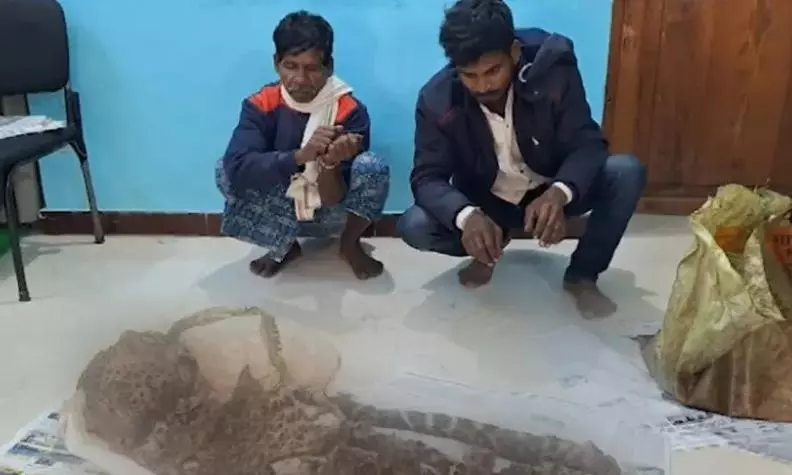Odisha: Poachers eat leopard meat after killing it with electric trap

Bhubaneswar: In a shocking and unprecedented incident, poachers in Odisha's Nuapada district have reportedly consumed leopard meat after killing the animal with an electric trap.
Two suspects, identified as Pustam Chinda and Hrusikeh Chinda, have been arrested and remanded to judicial custody, while a third accomplice remains at large, according to reports.
Local authorities, including Komna Forest Range Divisional Forest Officer Debadutta Sutar and Assistant Conservator of Forest Sanjeev Vangola, have launched a thorough investigation into the case.
The poachers allegedly set an electric trap near the Deodaha Drinking Water Project on Sunday, aiming to capture wild boars. However, a leopard from the nearby forest fell prey to their deadly design when it approached the water project to quench its thirst.
Rather than fleeing after the accidental killing, the poachers reportedly skinned the leopard and cooked its meat. They later abandoned the animal's severed head, skin, and other body parts along the bank of a local river before leaving the area.
According to forest officials, the leopard died instantly after coming into contact with the electrified trap. The poachers, instead of reporting the incident, decided to eat the meat. They dismembered the animal, separating its skin, meat, and bones.
Authorities have recovered the leopard's severed head, skin, and other remains, which have been sent for forensic examination.
The death of the leopard at Deogaon follows a similar tragedy in Sambalpur district, where three elephants were killed in an identical manner just days earlier. These incidents have raised serious concerns about the safety of wildlife in Odisha and the increasing prevalence of poaching in the state.
"We have apprehended two poachers, and they have confessed to the crime. An investigation is underway to determine if others were involved," forest officials stated.
The cases in Nuapada and Sambalpur highlight the persistent challenges in combating wildlife poaching in Western Odisha. Conservationists and authorities are calling for stricter enforcement of anti-poaching laws and heightened surveillance in vulnerable areas to protect endangered species.

